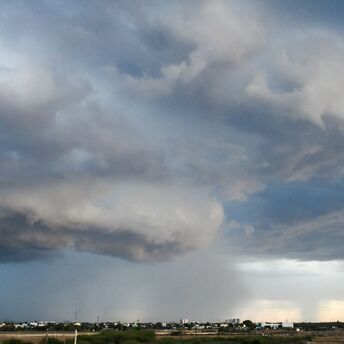Rare Fruit Fly Larvae Intercepted at Detroit Airport

U.S. Customs and Border Protection (CBP) agriculture specialists made a significant discovery at Detroit Metropolitan Wayne County Airport (DTW) earlier this year. In June, they identified larvae of a rare fruit fly in a passenger’s luggage, marking a crucial step in protecting the United States’ agricultural integrity. The passenger, arriving from Italy, was subjected to additional baggage screening after failing to answer agricultural questions, leading to the discovery.
A Rare and Dangerous Pest
The larvae were found in fresh caper flowers carried by the passenger. Subsequent analysis by the USDA Systemic Entomology Laboratory confirmed the specimens as caper fruit fly larvae. This species is part of the same family as some of the most destructive agricultural pests, such as the Mediterranean and Oriental fruit flies. Notably, the caper fruit fly had not been intercepted in the U.S. for 20 years, with the last detection occurring in Tampa, Florida.
Port Director Fadia Pastilong emphasized the importance of the CBP's work in preventing agricultural threats, stating, "Pests like this may be the next introduced species of concern if they go undetected."
Economic Risks of Pest Outbreaks
Unchecked pests can have devastating effects on agriculture. The Mediterranean fruit fly outbreak of the 1980s is a prime example, costing California and the federal government $100 million to eradicate. This crisis stemmed from a single contaminated piece of fruit brought into the country by a traveler.
CBP’s strict screening protocols are essential to avoid similar incidents. Agricultural items such as fruits, vegetables, and flowers can carry non-native pests that endanger local ecosystems. Depending on their origin, these items undergo thorough inspections to prevent potential outbreaks.
Screening Efforts at Airports
While all major airports enforce agricultural screening, the level of scrutiny varies. For example, airports in Hawaii are especially vigilant due to the islands’ fragile ecosystems. Travelers must declare all plants, animals, or agricultural materials upon arrival to minimize ecological risks.
The interception at Detroit Airport underscores the critical role CBP plays in safeguarding U.S. agriculture, reminding travelers of the importance of adhering to customs regulations when transporting goods across borders.



















